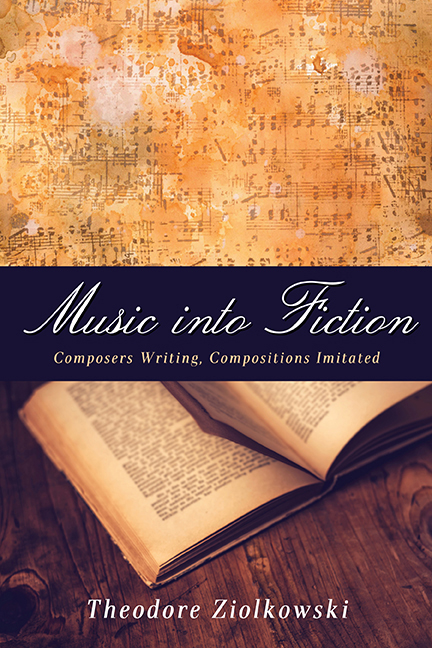Summary
It seems inevitable, I suppose, that a literary scholar with a lifelong passion for music should finally have written this book. My father was a pianist and professor of music at what is now Montevallo University in Alabama. My mother, also a musician, taught piano at home and gave me my first lessons. But human nature and youthful rebellion being what it is, when I was nine years old I switched my allegiance from the piano to the trumpet, which I played through high school and college and with which I supplemented my income as a graduate student, instructor, and assistant professor by playing two or three nights a week in big bands and jazz combos.
Newly tenured and moving from New Haven to New York City and subsequently to Princeton, I gave up my union membership and professional playing in order to devote myself fulltime to teaching and scholarship in German and comparative literature. During those years, though my collection of LPs, tapes, CDs, and DVDs grew and became increasingly classical-rather than jazz-oriented, I practiced neither trumpet nor piano. After my retirement I returned to the piano, where my already limited skills had become quite rusty. In the course of my practicing I soon turned to Bach's The Well-Tempered Clavier, to which I became passionately addicted and in which I have discovered, as have so many before me, the elements of all subsequent music, including—as Schoenberg frequently quipped (for instance, in his 1950 essay “Bach”)—even twelve-tone composition in the B Minor Fugue of book 1, not to mention the jazzy harmonies and rhythms of the preceding prelude. (As though to demonstrate the validity of Schoenberg's observation, the Estonian composer Arvo Pärt in his 1968 Credo—the composition that marked the stylistic shift from his earlier serialism to the “sacred minimalism” for which he is best known—combined Bach's opening Prelude in C Major with an exuberant twelve-tone development based on its famous tonalities.) Now rarely a day passes when I do not play at least a few of the preludes and fugues from book 1 or 2. During that hour the stresses of the day fall away as I succumb in abject admiration to the loft iness of genius that, in Bach, the human spirit attained.
- Type
- Chapter
- Information
- Music into FictionComposers Writing, Compositions Imitated, pp. ix - xiiPublisher: Boydell & BrewerPrint publication year: 2017

